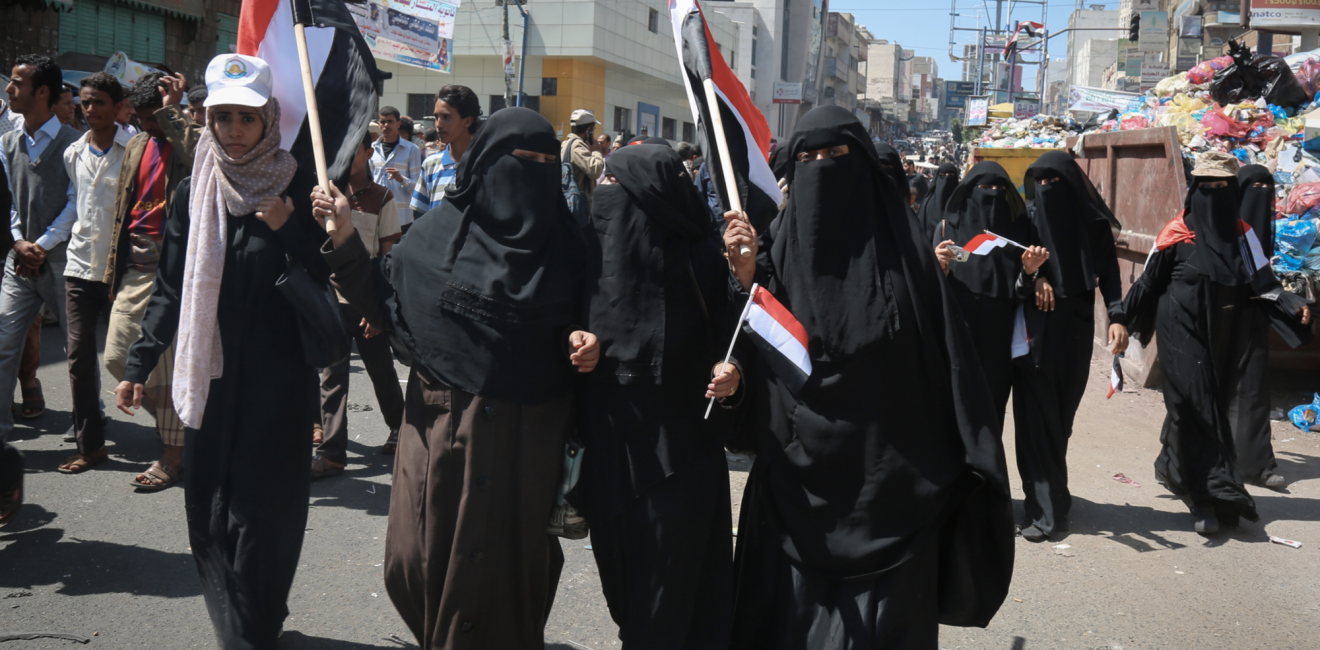
A blog of the Middle East Women's Initiative
They are not allowed to express their views, as Yemen lacks a governing system that protects women and persecutes them if they speak up against any party.
The war in Yemen has been ongoing for more than five years, impacting the livelihood of Yemenis, but it is the women and girls who suffer most.
Women played a big role in the January 27 uprising in 2011, and during the national dialogue that followed. In the period after this, the role of women was neglected and therefore left them behind. They are not allowed to express their views, as Yemen lacks a governing system that protects women and persecutes them if they speak up against any party.
Women in Yemen are forgotten. They have no domestic, national, or regional power to influence policy to empower their political, economic, and social role. The peace talks and negotiations have not been successful. They lack broad public support because they are organized by the male-dominated political scene which represent elite interests and shut out women, who represent national and communal interests. Based on the agreement between the Southern Transitional Council (STC) and the legitimate government, a newly appointed government was formed on December 18th, 2020, but unfortunately, not a single woman was nominated. A feasible political transition will not take place unless women are playing a vital role at different levels of power – starting from the political parties that have declared their intention to empower women candidates in order to enable them to play a national and political role.
Women’s voices in political negotiations should be enhanced and their views heard on establishing common ground between the parties of the conflict. The national networks of international NGOs and civil society organizations must prepare a strategy for women's involvement and carry out an action plan for the next 2-5 years to give women a voice in making a smooth political transition and sustainable peacebuilding.
As a Yemeni woman, I recommend that the UN Special Envoy implement more peace talks directly with women at societal and political negotiations. Without women's political engagement within the peace negotiation and political system, Yemen won’t have a stable future and the governing system will remain weak and fragile.
Author
World Learning

Middle East Program
The Wilson Center’s Middle East Program serves as a crucial resource for the policymaking community and beyond, providing analyses and research that helps inform US foreign policymaking, stimulates public debate, and expands knowledge about issues in the wider Middle East and North Africa (MENA) region. Read more


Middle East Women's Initiative
The Middle East Women's Initiative (MEWI) promotes the empowerment of women in the region through an open and inclusive dialogue with women leaders from the Middle East and continuous research. Read more

Explore More in Enheduanna
Browse Enheduanna
Women are the Catalysts for Change in Lebanon

How Education Can Empower Young Women in MENA


